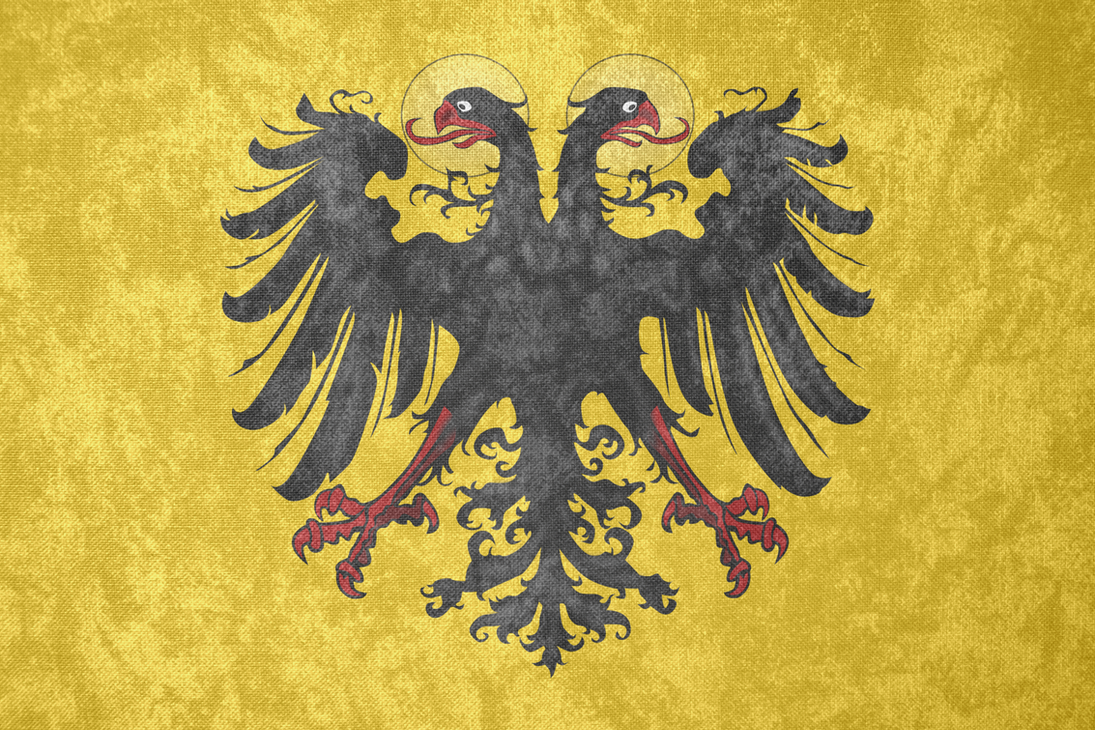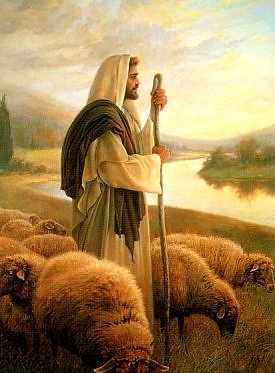Imperial Sunday
the 3rd Sunday after Easter
St Peter commands us:
"Honour Caesar, the Roman Emperor..."
(1 Pet 2:17)
 |
| The double-headed Eagle was the emblem and Arms of the Holy Roman Empire signifying the Eagle of Rome looking both East and West across the whole world |
Here it is:
[13] Subjecti igitur estote omni humanae creaturae propter Deum: sive regi quasi praecellenti: [14] sive ducibus tamquam ab eo missis ad vindictam malefactorum, laudem vero bonorum: [15] quia sic est voluntas Dei, ut benefacientes obmutescere faciatis imprudentium hominum ignorantiam: [16] quasi liberi, et non quasi velamen habentes malitiae libertatem, sed sicut servi Dei. [17] Omnes honorate: fraternitatem diligite: Deum timete: regem honorificate. [18] Servi, subditi estote in omni timore dominis, non tantum bonis et modestis, sed etiam dyscolis. [19] Haec est enim gratia, si propter Dei conscientiam sustinet qui tristitias, patiens injuste.
[13] Be ye subject therefore to every human creature for God' s sake: whether it be to the king [i.e. the Roman Emperor or, in Greek, Basileus] as excelling; [14] Or to dukes as sent by him for the punishment of evildoers, and for the praise of the good: [15] For so is the will of God, that by doing well you may put to silence the ignorance of foolish men: [16] As free, and not as making liberty a cloak for malice, but as the servants of God. [17] Honour all men. Love the brotherhood. Fear God. Honour the king [i.e. Caesar, the Emperor]. [18] Servants, be subject to your masters with all fear, not only to the good and gentle, but also to the froward. [19] For this is thankworthy, if for conscience towards God, a man endure sorrows, suffering wrongfully.
At that time, the Roman Emperor was still pagan but, nonetheless, St Peter commanded us to honour and obey him, in all things but sin, as the lay vicegerent of God.
So much the more, then, should we honour and obey the Roman Emperor when he became Christian, as the Emperor Theodosius did, following the conversion of the Emperor Constantine.
 |
| The Roman Caesar Augustus and Emperor Constantine the Great sees a vision of the Holy Cross in the sky with the words "in this conquer" before his victory in the Battle of the Milvian Bridge, Rome |
The Roman Emperor and Caesar Augustus Constantine I the Great saw a vision of the Chi-Rho symbol of Christ and the words, in Greek, Εν τουτο νικα (pronounced: "en touto nika") - usually rendered in Latin since then as IN HOC SIGNO VINCES ("in this sign conquer"), before his great victory at the Battle of the Milvian Bridge just outside Rome.
Not long after he liberated Christianity throughout the Empire, later himself becoming a Christian.
Although Christianity was not made the religion of the Roman Empire until the next emperor, Theodosius, nevertheless winning this battle, seemingly by divine inspiration, caused Constantine to defend, and later to convert to, Christianity.
So this victory is said to mark the beginning of the nearly two thousand years of the Christian and Catholic Roman Empire.
 |
| The Roman Emperor Charlemagne who restored the Christian Roman Empire to the West in 800AD |
The tail end of the Romand Catholic Empire came, first, at the disaster of the French Revolution, with the threats of the Arch-heretical Anti-Emperor, Napoleon Bonaparte, and then, later, with the Protestant Anti-Emperor of Germany, and, finally, at the fall of the Austrian Empire in 1918, in World War I, when the last successor of Caesar Augustus, the Blessed Emperor Charles of Austria, was forced off his throne despite trying throughout his reign to stop the bloody and futile First World War.
 |
| The Blessed Emperor Charles of Austria was the last ruler of the successor to the Holy Roman Empire, spent his short reign dedicated to peace and stopping the First World War and suffered so much for this that he died at the early age of only 34 in exile in Madeira |
Since the earliest of times, until the impious destruction of the liturgy by the offensively impious Monsignor (later Archbishop) Annibale Bugnini, the Christian Faithful have prayed, in the public liturgy of the Church, for the Catholic Roman Emperor.
Here are the sublime prayers for the Emperor that were a familiar feature (until removed in 1955 by Mgr Bugnini) of the Easter Triduum, the oldest known liturgy in the entire Christian Church.
On Good Friday, during the Great Intercessions:
Oremus et pro Christianissimo imperatore nostro [Nomen] ut
Deus et Dominus noster subditas illi faciat omnes barbaras nationes ad nostram
perpetuam pacem….
Omnipotens sempiterne Deus, in cujus manu sunt omnium
potestates, et omnium jura regnorum: respice ad Romanum benignus imperium; ut
gentes, quae in sua feritate confidunt, potentiae tuae dexterae comprimantur.
Per Dominum.
“Let us pray also for
the most Christian Emperor [Name] that the Lord God may reduce to his obedience
all barbarous nations for our perpetual peace….
O almighty and eternal
God, in whose hands are all the power and right of kingdoms, graciously look
down on the Roman Empire that those nations who confide in their own
haughtiness and strength, may be reduced by the power of Thy right hand. Through the same Lord…”
Respice etiam ad devotissimum imperatorem nostrum (Nomen) cujus tu, Deus, desiderii vota praenoscens, ineffabili pietatis et misericordiae tuae munere, tranquillum perpetuae pacis accommoda, et coelestem victoriam cum omni populo suo.
"Regard also our most devout Emperor [Name] and since Thou knowest, O God, the desires of his heart, grant by the ineffable grace of Thy goodness and mercy, that he may enjoy with all his people the tranquillity of perpetual peace and heavenly victory."
In the Roman missal there was also always a Mass Pro Imperatore for the Roman Emperor with the following prayers:
"O God, who prepared the Roman Empire for the preaching of the Gospel of the eternal King, extend to Thy servant, our Emperor, the armoury of heaven, so that the peace of the churches may remain undisturbed by the storms of war. Through Christ our Lord. Amen."
This was used also at the Coronation of an emperor, when the Emperor-elect was anointed by the Cardinal-bishop of Ostia, given the sword and orb by the Pope, ordained by him a Sub-deacon (from the time of Emperor Charles V, a Deacon) and then crowned Caesar semper Augustus, Romanorum Imperator with the sacred crown of Charlemagne, after which, as Deacon, he served the papal mass.
 |
| Emperor St Henry II Holy Roman Emperor (1014-1024) was born in 973 and died in 1024. He was the last member of the Ottonian dynasty of emperors as he had no children. Duke of Bavaria from 995, King of Germany and of the Romans (Rex Romanorum or Emperor-elect) from 1002, crowned King of Italy in 1004, he was crowned by the Pope as Caesar Semper Augustus and Imperator Romanorum or Holy Roman Emperor on 14 February 1014 in old St Peter's Basilica. He married Princess Cunigunde of Luxemburg and, after his death, the Prince-electors of the Empire elected Conrad II to succeed him, as the first of the Salic dynasty of emperors. |
All ye holy Roman and Catholic Emperors and Empresses,
pray for us!
+++



















.jpg)


























_-002.jpg/220px-Circle_of_Anton_Raphael_Mengs,_Henry_Benedict_Maria_Clement_Stuart,_Cardinal_York_(ca_1750)_-002.jpg)


